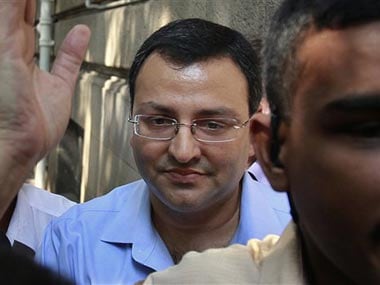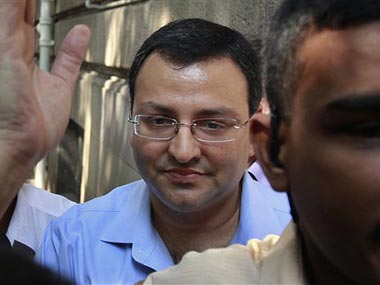The Ratan Tata-Cyrus Mistry fracas has spiraled quickly, with both camps airing a fair amount of their dirty laundry out in public. Many are anticipating an historic legal clash to take place between the two titans of Indian industry soon. While Cyrus Mistry has a number of legal options at his disposal under the extant legal framework as well as the Company’s Articles of Association, his best bet would be to go through his father’s company, Shapoorji Pallonji, a principal shareholder in Tata Sons, and file a petition for oppression and mismanagement under Sections 397 and 398 of the Companies Act, 1956. The Tata Group, however, also seems to have enough evidence but Mistry’s claims put up a strong defence in front of the National Company Law Tribunal (NCLT). [caption id=“attachment_3077404” align=“alignleft” width=“380”]  Cyrus Mistry. AP[/caption] Tata’s strategy predicates on being able to show that Mistry’s removal was in the best interest of the company and its shareholders. Let us explore what legal defences are open to Tata Sons under the Act. As stated in an earlier article published by Firstpost, Section 397 provides for relief if the affairs of a company are conducted in a manner which is prejudicial to public interest or oppressive to any members. Section 398 provides that members of the company may apply to the Tribunal if a material change has taken place in the management or control of the Company, including but not limited to an alteration in its Board of directors, and that such a change will result in prejudice to public interest or the interests of the company. Under this Section the Tribunal may pass orders to rectify the situation. Under the Act, Shapoorji Pallonji would have to establish that Mistry’s removal is an action that is detrimental to the interests of the Tata group. For one, Mistry’s ouster was completely legal as per the Company’s Articles of Association. The Articles require the board of directors to vote on bringing a new chairman in and the same procedure is to be followed when removing the chairman of the board. This was the procedure followed when Mistry was brought in and when he was removed. Courts have established that bona fide decisions consistent with the company’s memorandum and articles are not to be equated with mismanagement even if they turn out to be erroneous or cause temporary losses. The change in the control and management of the company and the appointment of new executives as a result thereof cannot be questioned under Section 398, and the court will not interfere with the affairs of a company in a case where the act complained of is within the realm of the company’s powers under its articles and memorandum. In terms of Mistry’s email and the allegations he has levelled in it, specifically the losses that the salt-to-steel conglomerate incurred in certain business deals such as NTT Docomo, are not necessarily instances of mismanagement when viewed through the prism of recent court rulings. In fact, Mistry’s improper handling of the DoCoMo arbitration and the subsequent $1.2 billion that was awarded against Tata will certainly not bode in his favour in front of the NCLT. The NCLT has a wide range of powers when disposing of a petition under Section 397 or 398 of the Act. These powers are enumerated in Section 402 and they include the ability to pass orders to regulate the company’s conduct in the future, termination of agreements between the company and directors, and any other matter in which it thinks a just and equitable provision should be made. The expansive nature of the powers granted to the NCLT under the Act imposes a strict burden of proof on Shapoorji Pallonji and Cyrus Mistry to back their allegations against Tata. The Tata group has already issued a response to Mistry’s email, stating that the allegations in his correspondence are baseless and that he was not hindered in any way when running the conglomerate. It will be interesting to see how Mistry attempts to take on an organization that has been around since the time of the American Civil War. (The author is the founder of Hammurabi & Solomon and a visiting fellow with the Observer Research Foundation)
Cyrus Mistry’s allegations, specifically the losses on NTT Docomo, are not necessarily instances of mismanagement when viewed through the prism of recent court rulings
Advertisement
End of Article


)

)
)
)
)
)
)
)
)



